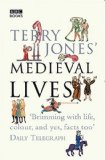 After saying last week that I usually review books in their own posts, here I go reviewing a book in this post, just like I did last week. It just so happens that I only finished one book this week, anyway, and I finished it today.
After saying last week that I usually review books in their own posts, here I go reviewing a book in this post, just like I did last week. It just so happens that I only finished one book this week, anyway, and I finished it today.
First, an update on my reading challenges. I’m still keeping up with my Literary Movement Challenge. Next up in April will be the biggest test of this challenge so far because I’ve decided I want to read The Annotated Wuthering Heights for April (Romanticism). Up until now, the works I’ve read have been shorter and not quite as dense as this book, but ever since I ordered in it December, I have been looking forward to cracking it open. Can’t wait! It’s been a while since I’ve read Wuthering Heights, and and can’t wait to see what the annotated edition offers.
I am doing fairly well with the other challenges, and thought it’s still early days, I feel that I might be able to complete them all this year. I may actually be able to increase my participation level in the Historical Fiction Challenge. I am trying to decide what book to listen to next, now that I’ve finished Bossypants. I’m not sure I’m ready to go back to the Diana Gabaldon books yet. I might read Shadow of Night by Deborah Harkness. I enjoyed listening to the first book in this trilogy. I keep thinking I might enjoy the other two, and I already have them in my Audible account, but I just haven’t listened to them.
I’m not really close to finishing anything else, unless I really read a lot this coming week. I have lots of books in the TBR pile, and I’m looking forward to getting into them. On the other hand, I’m looking forward to a busy week, so we shall see.
 I think perhaps the best way to read Bossypants is to listen to Tina Fey’s Grammy-nominated audio version. Hearing her delivery added some spark to the book, and I’m not sure I’d have liked it as much if I had just read it. The book has some genuinely funny moments. I loved her descriptions of starting school, her high school days participating in theater, and her early improv days. Hearing her discussion of what it was like to work on SNL, to create her Sarah Palin character, and to create the show 30 Rock were all very interesting to me as well. One thread that runs through the book is that Tina Fey came up in comedy dominated by men, and her experiences of sexism in the industry were particularly though-provoking if not surprising. One thing I didn’t like is that the book didn’t seem to have a narrative arc. It was more a string of different life experiences, and I didn’t see them woven together as clearly as I might have liked. However, Fey’s delivery made me not care so much—I felt like I was having a conversation with a smart friend.
I think perhaps the best way to read Bossypants is to listen to Tina Fey’s Grammy-nominated audio version. Hearing her delivery added some spark to the book, and I’m not sure I’d have liked it as much if I had just read it. The book has some genuinely funny moments. I loved her descriptions of starting school, her high school days participating in theater, and her early improv days. Hearing her discussion of what it was like to work on SNL, to create her Sarah Palin character, and to create the show 30 Rock were all very interesting to me as well. One thread that runs through the book is that Tina Fey came up in comedy dominated by men, and her experiences of sexism in the industry were particularly though-provoking if not surprising. One thing I didn’t like is that the book didn’t seem to have a narrative arc. It was more a string of different life experiences, and I didn’t see them woven together as clearly as I might have liked. However, Fey’s delivery made me not care so much—I felt like I was having a conversation with a smart friend.
Rating: 




Audio Rating: 




The Sunday Post is a weekly meme hosted by Caffeinated Book Reviewer. It’s a chance to share news, recap the past week on your blog, and showcase books and things we have received. See rules here: Sunday Post Meme.



